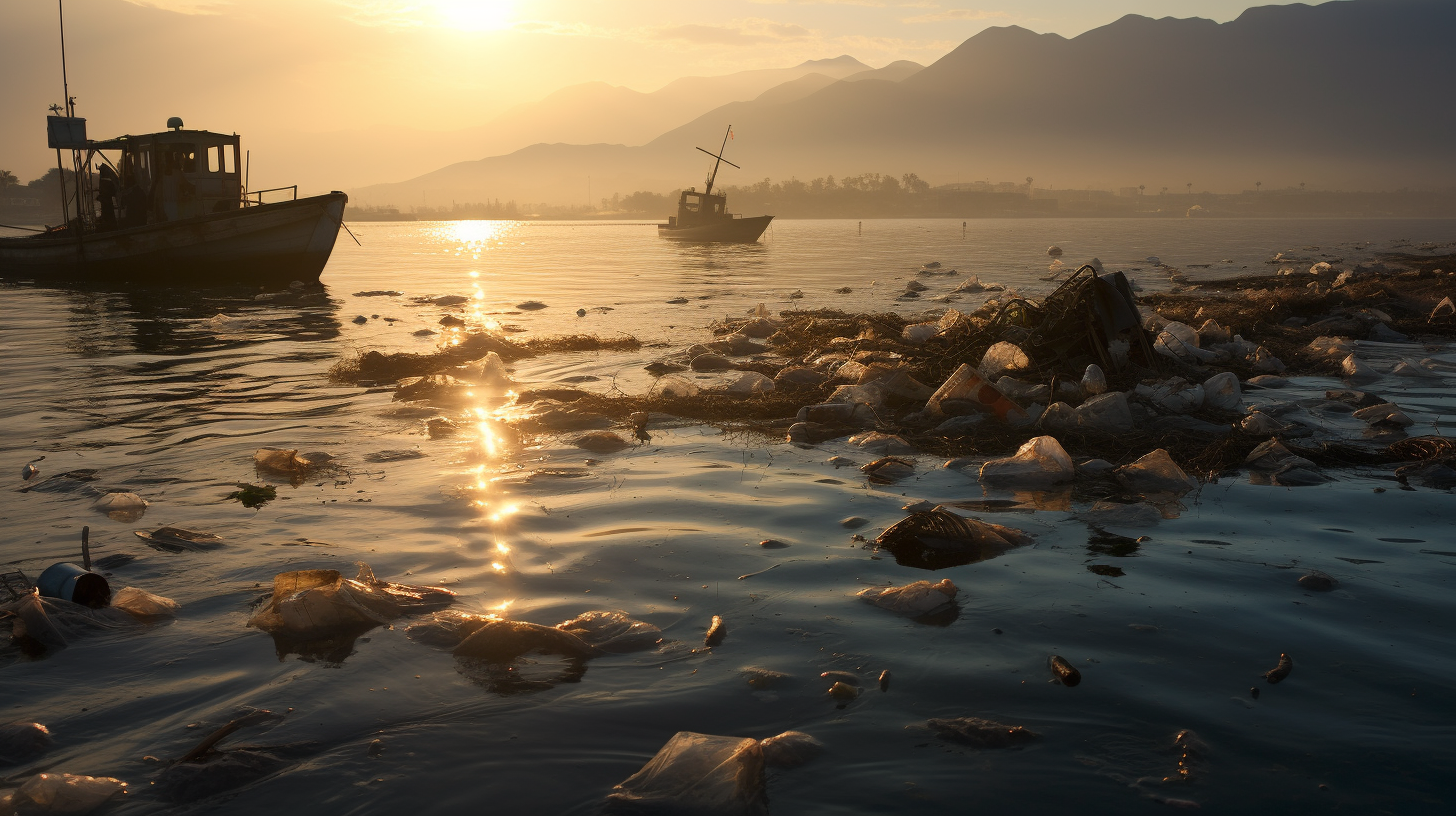In the somber twilight of what used to be bustling seas, communities that once thrived on the bounty of the oceans now languish behind barriers constructed not by intent but by neglect; barriers of waste that have, over time, knitted themselves into the ghastly semblance of prison nets. These Carceral Seas, as they’ve come to be known, epitomize a catastrophic failure, a human-made anomaly where the water’s surface glistens not with the sun’s reflection but with the slick sheen of petrochemicals and decay.
The aesthetic of these tainted waters belies the tragedy playing out below. Once the lifeblood of coastal civilizations, the seas are now choked by debris fields so expansive and dense, they defy logic and sobriety. It’s a tableau of destruction, with ghost nets, the forsaken tools of an industry’s past vigor, roaming the depths like spectral hunters—entrapping, suffocating, killing without partiality.
Our narrative weaves through the lives of those entangled in this dire reality. ‘Fishing is not just a job; it’s our heritage,’ declares Arjun, a fisherman whose lineage has braved these waters for generations. But his voice is tinged with a resignation born from watching his ancestral trade become a Sisyphean struggle against the tides of refuse. ‘What we pull from the sea… it’s not fish. It’s plastic. It’s death.’
In this portrait of a community besieged, the local market, once aromatic with the brine and vigor of fresh catch, now host stalls peddling pitiful harvests of marine life, their bodies tainted by the microplastics that weave themselves into flesh and fiber. Consumers eye the fish with understandable trepidation; the lines between sustenance and poison have never been so blurred.
Children, who should be playing freely by the shore, instead grow up with tales not of the sea’s wonder, but of its curse. They learn early that the waters hold not riches but reminders of a world that has turned its back on circumspection, where the term ‘catch of the day’ is a grim lottery of potential toxicity.
In the relentless pursuit of economic progress, waste management fell by the wayside, leading to today’s punishing reality. The poignant scenes we observe—a father teaching his son to discern between a worthy catch and a dangerous one—are but microcosms of a planetary-scale debacle.
We can hear the solemn dirges of conservation efforts, recited like eulogies over a dying patient. Their calls for action, potent with the passion of warriors facing an overwhelming adversary, add a haunting score to the environmental obituary that these waters have become. Yet, their fight seems almost Quixotic in the immense scale of a battle already lost.
This grisly collage of human misadventure and ecological tragedy does not soothe the soul nor promise a dawn of new awareness. Instead, it cements the disturbing realization that the dystopian present is not a cautionary tale but a manifest destiny, relentless and unforgiving.
As the Carceral Seas hold their captives—man, beast, and nature—within bars of waste, one truth becomes starkly clear: the chains we have wrought are not easily cast off, and the freedom once bestowed by the open blue is now just a fable, swallowed by waves of our own creation.
